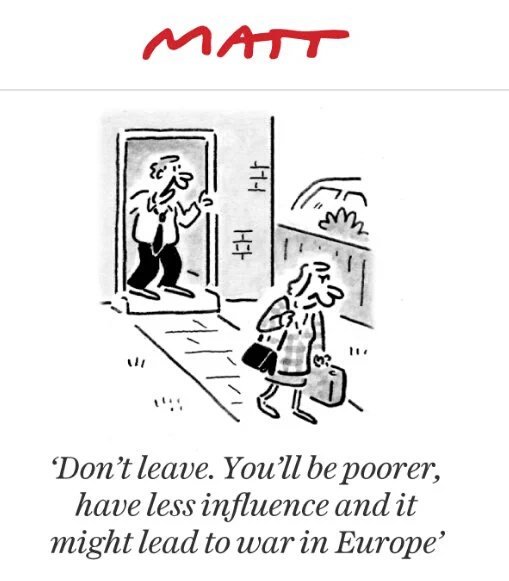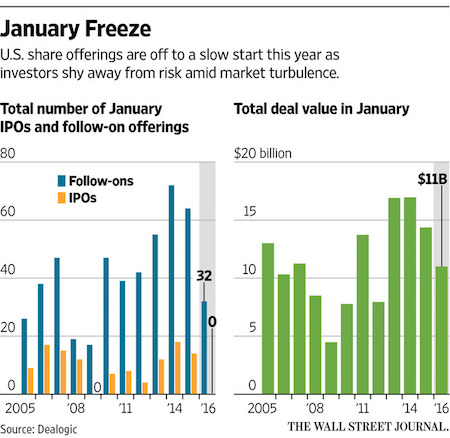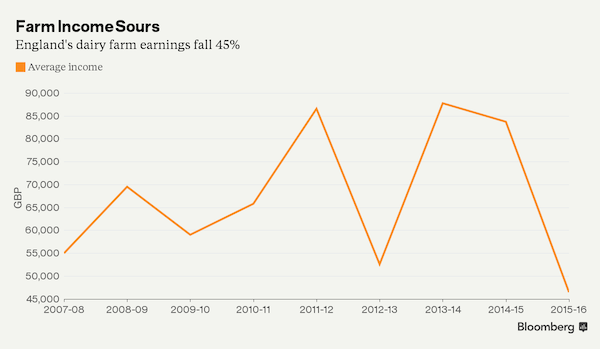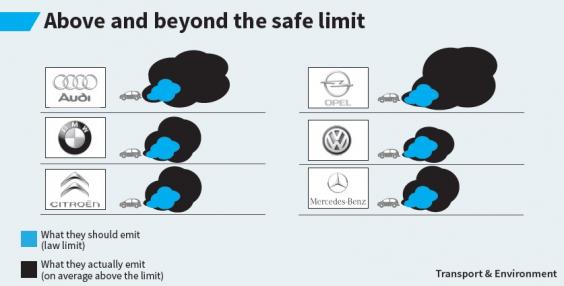
Pablo Picasso Baigneuses 1918

Doshi
https://twitter.com/i/status/1456482148089794560

Door-to-Door vaxxinations in QLD!
https://twitter.com/i/status/1456552719188176900



In a normal world, this would be the nail in the coffin. This is not a normal world.
• Drastic Drop In Covid Vaccine Effectiveness (RT)
Three different coronavirus shots – those mainly available in the US and Europe – have shown a dramatic decline in efficacy over time, a study of nearly 800,000 Americans reveals. Covid-19 vaccine effectiveness against both infection and death was studied in three US approved jabs – the Pfizer-BioNTech and Moderna mRNA shots, and the Janssen viral vector vaccine. Having analyzed data from 780,225 US veterans of different ages and sexes between February and October, researchers came to a disturbing conclusion. Vaccine protection against Covid-19 infection dropped from 89.2% at its highest to a low of 13.1%, according to a joint study by the Public Health Institute, the Veterans Affairs Medical Center, and the University of Texas Health Science Center, published in the Science journal on Thursday.
While effectiveness against infection in March was 89.2% for Moderna, 86.9% for Pfizer, and 86.4% for Janssen, by September there were massive declines to 58%, 43%, and 13% respectively. The emergence and dominance of the Delta strain of the virus during the time of the study may have played a role, researchers said, adding that vaccine protection waned across all studied age groups. More than 26,000 positive PCR tests occurred in some 498,000 fully vaccinated veterans. The authors said the pattern of breakthrough infections shows a “worrisome temporal trend.” While the analysis covers 2.7 percent of the US population, other domestic and international studies have shown significantly waning efficacy.
On a brighter note, vaccine effectiveness against hospitalization and death remained high. As breakthrough infections, hospitalizations, and deaths continue to emerge in fully vaccinated people, there is “an urgent need to reinstate multiple layers of protection, such as masking and physical distancing – even among vaccinated persons,” the scientists warn.

About the same report, with added benefits: 1/ LA Times manages to turn the utter failure of the vaccines into a promo for the same vaccines and 2/ a booster after 28 days. Soon coming to your town.
• Dramatic Decline In Effectiveness Of All Three Covid-19 Vaccines Over Time (LAT)
As the Delta variant became the dominant strain of the coronavirus across the United States, all three COVID-19 vaccines available to Americans lost some of their protective power, with vaccine efficacy among a large group of veterans dropping between 35% and 85%, according to a new study. Researchers who scoured the records of nearly 800,000 U.S. veterans found that in early March, just as the Delta variant was gaining a toehold across American communities, the three vaccines were roughly equal in their ability to prevent infections. But over the next six months, that changed dramatically. By the end of September, Moderna’s two-dose COVID-19 vaccine, measured as 89% effective in March, was only 58% effective. The effectiveness of shots made by Pfizer and BioNTech, which also employed two doses, fell from 87% to 45% in the same period.
And most strikingly, the protective power of Johnson & Johnson’s single-dose vaccine plunged from 86% to just 13% over those six months. The findings were published Thursday in the journal Science. The three vaccines held up better in their ability to prevent COVID-19 deaths, but by July — as the Delta variant began to drive a three-month surge of infections and deaths — the shots’ effectiveness on that score also revealed wide gaps. Among veterans 65 and older who were inoculated with the Moderna vaccine, those who developed a so-called breakthrough infection were 76% less likely to die of COVID-19 compared with unvaccinated veterans of the same age. Older veterans who got the Pfizer-BioNTech vaccine and subsequently experienced a breakthrough infection were 70% less likely to die than were their unvaccinated peers.
And when older vets who got a single jab of the J&J vaccine suffered a breakthrough infection, they were 52% less likely to die than their peers who didn’t get any shots. For veterans younger than 65, the Pfizer-BioNTech and Moderna vaccines provided the best protection against a fatal case of COVID-19, at 84% and 82%, respectively. When younger veterans inoculated with the J&J vaccine suffered a breakthrough infection, they were 73% less likely to die of COVID-19 than were their unvaccinated peers. The Centers for Disease Control and Prevention has recommended booster shots for everyone who got the Johnson & Johnson vaccine at least two months earlier.
Boosters are also recommended six months after a second dose of the Moderna or Pfizer vaccines for everyone 65 and older; those with medical conditions that make them more vulnerable to a serious case of COVID-19; those who live in nursing homes or other group settings; and those who live or work in high-risk settings such as hospitals or prisons. In addition, all people with compromised immune systems are advised to get a booster shot if it’s been at least 28 days since their vaccine took full effect.

Not long ago, Pfizer “falsified data, unblinded patients, employed inadequately trained vaccinators, and was slow to follow up on adverse events reported..” Now that’s a come back.
• Pfizer Shares Surge After Release Of ‘Miracle’ COVID Pill (ZH)
Thursday was a rough day for Moderna shares after the company released revenue figures and FY guidance that deeply disappointed Wall Street expectations (potentially destroying the reputation of financier Steve Weiss, arguably Moderna’s biggest promoter on Wall Street, in the process). But on Friday, Pfizer – Moderna’s biggest rival – rubbed Moderna’s nose in it by announcing a revolutionary new oral COVID antiviral similar to the Merck ‘miracle pill’ that won approval from UK regulators yesterday. The news sent Pfizer’s stock surging, while Moderna and Merck shares tumbled, during premarket trade. Pfizer shares were trading up 11%+:
The key takeaway from the Pfizer announcement is this: Pfizer said studies showed its COVID-19 pill reduced hospitalizations and deaths in high-risk patients by 89%. That’s even higher than the 50% reduction in hospitalizations and deaths shown by the Merck pill. Again, like Merck, Pfizer said that it was no longer taking new patients in a clinical trial of the treatment “due to the overwhelming efficacy” of the drug, which it now plans to submit its findings to the FDA for emergency authorization (just like Merck is doing). Yesterday, Merck won approval for its new COVID antiviral, molnupiravir, from regulators in the UK, and it’s pushing to wrack up as many EUAs as possible from regulators from all over.
Pfizer is already planning to seek approval emergency approval from the US government because, according to the numbers, its drug is even more effective than molnuiravir. According to the headline numbers, Pfizer’s new antiviral is even more effective than the rival pill from Merck. Pfizer’s pill, which will be sold under the brand name Paxlovid, cut the risk of hospitalization or death by 89% when taken within three days after symptoms emerge (the number for Merck’s drug was it needed to be taken within 5 days of infection). “The results are really beyond our wildest dreams,” said Annaliesa Anderson, a Pfizer executive who led the drug’s development. She expressed hope that Paxlovid “can have a big impact on helping all our lives go back to normal again and seeing the end of the pandemic.”

“Citizens have a right to object to this, and to the illegal vaccine “mandate” invoked by the pugnaciously stupid “Joe Biden” regime..”
• Woke Gets Whacked — But Hold the Victory Lap (Kunstler)
The CDC and the FDA have unleashed a set of untested vaccines on the public that have been shown to produce alarmingly high rates of adverse reactions, both disabling and leading to death. The CDC’s VAERS system for reporting all that is so janky that doctors can barely use it and the CDC refuses to fix it; meanwhile doctors are being punished for even attempting to report adverse reactions. The whole of medical officialdom has militated aggressively against early treatments of Covid-19 with cheap and easily available drugs, even firing doctors who attempt to use the protocols.
The entire approval process of the various vaccines has been rife with fraud, gamed statistics, sabotaged trials, bait-and-switch scams, and unaccountable manufacturing screw-ups — all immersed in a stench of moneygrubbing. The drug companies have refused to fully reveal the contents of the vaccines. Now they are ramping up an urgent campaign to vaccinate children following rushed and falsified clinical trials, with the statistical certainty that many more kids will be injured or will die from the vax than they would from Covid-19 itself.
Citizens have a right to object to this, and to the illegal vaccine “mandate” invoked by the pugnaciously stupid “Joe Biden” regime. There is an awful creeping suspicion in the USA and in other countries that people who have received vaccinations are beginning to present fatal cardiovascular and neurological illness in large numbers, and that an attempt is underway to cover all this up. There is likewise a growing body of evidence that the vaccines and “boosters” incrementally disable the human immune system so that later in the winter of 2021-2022 millions of people will be at risk of dying from Covid variants and virtually any other disease that comes along, including cancers. How many of us are prepared for that?

In Greece yesterday, the police were using water cannon against protesting firemen.
• No, It’s Not Legal (Denninger)
OSHA claims this is an “Emergency” and requires immediate action. However, it wasn’t an emergency 11 months ago. Nor was it one in September, when there were many, many more cases and deaths than there are today. It also isn’t one now until January 2nd, directly after a number of industry groups complained about the impact of it on the holidays. Note that the alleged “authority” that OSHA has to deal with workplace insults and risks when it comes to an ETS depends on it being an actual emergency. OSHA cannot deliberately decide to sacrifice employees “up to a specific date because its inconvenient for their employers.” Indeed that act alone invalidates the ETS as it makes clear there is no emergency at all and the claim of one is a pretext.
OSHA’s regulatory authority is limited to workplaces. A risk that is diffuse and beyond the workplace in at least equal quality and severity is beyond their mandate. A respiratory virus is in that category. Can OSHA mandate asbestos regulations or concentrations of chemicals in the factory or other working environment? Sure. Can they mandate that which is in the outside air in the ordinary environment at the same level of risk? No. There is no specific and articulable risk within general employment that is not present everywhere else in ordinary life.
OSHA is required to back up their findings and claims with actual science. They can’t. Specifically there is no evidence that being jabbed is superior to being infected — in fact, its the other way around. Even if it is superior at some point in time the alleged “rule” does not differentiate and, in the instant case, the evidence is that those who were jabbed in January of last year either lost all protection or actually have negative protection .vs. someone who was never vaccinated at all. This, incidentally, makes their entire argument pretextual (and which the administration has admitted.)
OSHA is required to use the least-invasive means to address whatever it claims needs addressing. Demanding an invasive and permanent medical procedure is not the least-invasive means. For example they might be able to get away with a mask rule provided those medically-contraindicated are exempted or moved to other jobs and provided the employer pays for the masks; there are protocols for safe use of same which are in fact required in other industries and certain atmospheres. That’s reasonable and carries no negative risk of temporary, permanent or catastrophic harm.
OSHA has admitted that a less-invasive means exists through their “mask and test” option and thus is required to issue that, if they issue anything. The Civil Rights Act does not give you the right to put murder others. As such OSHA cannot mandate a jab if an alternative that is less-intrusive, which they admit to, is deemed acceptable. They deemed it reasonable, acceptable and effective. Their mandate thus falls by their own hand.
OSHA further cannot mandate you play Russian Roulette in order to keep a job nor can they mandate your employer force you to playing Russian Roulette, even if they assert there is some other risk they’re mitigating by doing so. They can put in place a standard that carries no identifiable risk, and do — for example there is no identifiable risk to mandating guards on a punch press, hard hats on a construction site, air circulation standards in a factory where potential dust or other contamination is present, and similar. This mandate is for an invasive medical procedure that carries risk and it does not matter how small the risk is. OSHA simply has no authority to issue a rule that your employer must demand you risk grievous injury or death under penalty of fining them if you refuse.
In short OSHA must demonstrate that (1) the risk is unique to or concentrated in the workplace, (2) the requirement for an ETS is emergent and exigent, not one of convenience or pretextual, (3) the risk mitigated is of great bodily harm or death and (4) it is the least-invasive means of doing so. OSHA has repeatedly had their ETS issued standards thrown out because one or more of those requirements is not met. They rarely use this mechanism for this reason — and their record of success on challenge is poor.
This will go up in smoke folks — it’s just another threat by Biden and his pals, this time aimed at employers with the threat of huge fines if they push back. But you, as an employee, have all the power. No hospital runs without nurses. Garbage is not picked up without garbagemen and women. Fires are not put out without firefighters, nor are traffic accidents attended to and the “Jaws of Life” don’t operate themselves. Water and sewer systems don’t run themselves either.

The end of morals.
• Unvaccinated Troops Now Threatened With Losing All Their Veterans Benefits (ZH)
We detailed Thursday that many thousands of active duty Air Force personnel have still remained unvaccinated even after the Tuesday deadline has come and gone for the Air Force’s mandate to receive both Covid jabs, which was the earliest set deadline among US military branches. Already some branches like the Navy and Marines have clarified that members who refuse the mandate will be relieved of duty and separated from the service. After Tuesday’s deadline at least 8,500 active-duty members of the Air Force and Space Force are in non-compliance and now risk being kicked out. However, there’s no indication as of yet that commanders have booted anyone at this early point.
But now the Department of Defense (DoD) taking its threat of punitive action a big step further, saying unvaccinated service members could see their veterans’ benefits taken away. This would be based on personnel receiving other-than-honorable discharge, which will reportedly be determined by a base’s local command. The Pentagon is saying such a drastic penalty, which would result in individual veterans potentially losing everything from education benefits such as the GI Bill, to eligibility for a veterans home lone, is necessary as lack of vaccination impacts “readiness”. A new report in the Military Times quotes Gil Cisneros, Department of Defense (DoD) undersecretary for personnel, who told Senate Veterans’ Affairs Committee, “We see the vaccines as a readiness issue. Any discharge decision is up to the individual service as to how they proceed with that.”
The report describes that “Individuals with honorable discharges will be eligible for things like GI Bill benefits, VA home loans and transition assistance programs. Individuals with other-than-honorable discharges are still guaranteed mental health care services through VA, but may be blocked from most other benefits.” An honorable discharge would guarantee all of these benefits, while anything less throws them into doubt in terms of eligibility. Other branches have their deadlines for all personnel to get vaccinated coming in the next weeks. As for the Air Force, what might happen next is a mass expulsion of non-vaxxed service members. There was no word on what career fields the un-vaxxed were in. If some are pilots, especially ones operating stealth jets and bombers, the overreaching vaxx mandate could much more directly jeopardize America’s readiness for war.

Managing expectations.
• UKHSA Efficacy Stats Death Watch: Week 44 (eugyppius)
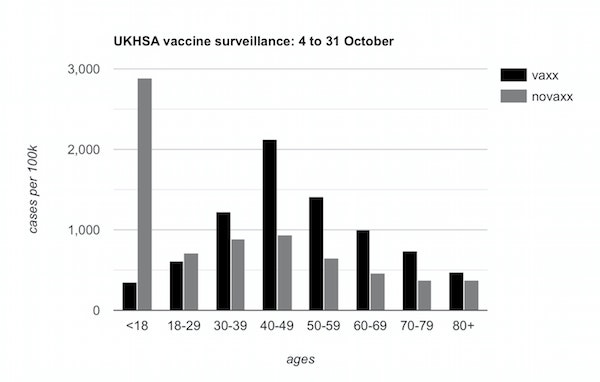
Vaccinated vs. unvaccinated case rates in the United Kingdom, from the latest UK Health Security Agency vaccine surveillance report
Yet again I had to draw this graph myself, and yet again, the UK Health Security Agency wants you to know that these rates are extremely, totally, absolutely unadjusted. They just don’t know precisely why or how. As I noted on Twitter, it’s emerged that UKHSA inserted all of their ill-advised disclaimers after coming under fire from the Office of Statistics Regulation, a regulatory body which periodically complains about statistics published by the British government. OSR director Ed Humpherson met with UKHSA hours before they published their Week 43 report, demanding they do something about these awkward graphs. They responded by ditching the graphs altogether and calling every last number unadjusted. This failed to satisfy him, so in the days afterwards he issued this unbelievable open letter.
“Dear Jenny, COVID-19 vaccine surveillance statistics
Thank you for the constructive meeting on Thursday 28 October to discuss the UK Health Security Agency’s (UKHSA) COVID-19 vaccine surveillance statistics. We focused on the risk that the data presented on rates of positive cases for those who are vaccinated and those who are unvaccinated have the potential to mislead – and indeed we noted that these data have been used to argue that vaccines are ineffective. We welcome the changes you have made to the Week 43 surveillance report, published on 28 October. It is also very good that you are working closely with my team and with the relevant teams in the Office for National Statistics (ONS).”The UK has backed itself into publishing some less-than-useful numbers. Now the office responsible for this publishing will have to work closely with a gaggle of political commissars, responsible for cleansing official discourse of anything that might be “used to argue that vaccines are ineffective.” Because he appears to be a genuinely stupid man, Humpherson spells this point out explicitly: “It remains the case that the surveillance report includes rates per 100,000 which can be used to argue that vaccines are not effective. I know that this is not the intention of the surveillance report, but the potential for misuse remains. In publishing these data, you need to address more comprehensively the risk that it misleads people into thinking that it says something about vaccine effectiveness.”

The end of morals.
• De Blasio To Pay Kids $100 To Get The Covid-19 Vaccine (Fox)
New York City will begin offering $100 to incentivize COVID-19 vaccines for kids ages 5-11. “Everyone can use a little more money around the holidays but most importantly we want our kids and our families to be safe,” New York City Mayor Bill de Blasio said in a statement. The new policy will apply to New York City-run vaccine sites and comes two days after the Centers for Disease Control and Prevention approved Pfizer’s COVID-19 vaccine for emergency use for children 5-11-years-old. The mayor said that getting the vaccine now will allow children to be fully vaccinated before Christmas, hoping that the $100 incentive will drive people to show up and get extra money for holidays.
The city is hoping to speed its effort to get kids vaccinated before they travel for the holidays, noting that the updated CDC guidance says that children have to wait three weeks between Pfizer doses, even though the dosage is smaller than the adult dose. The mayor also said that every public school in the city that serves children in the targeted age range will hold a dedicated vaccination day for those students beginning next week, which will cover about 1,070 sites over the course of the week by hitting roughly 200 schools per day. The city stressed that parents should be present to give verbal consent, whether at a school site or a city-run site, for their children to receive the shot, though de Blasio noted that parents and guardians can also give verbal consent over the phone.
“All choices are good choices, but we want to make it available and easy for parents who prefer just to go to their local school building,” de Blasio said. While millions of doses of the Pfizer vaccine have already been shipped around the country in advance of the guidance, pediatricians in the city say they have not been overwhelmed by calls for appointments for kids to get the shot. “We do NOT yet have the vaccine in our office. We placed an order last week and are awaiting confirmation about when the vaccine will be delivered. We will NOT schedule appointments until we have it,” a letter from Uptown Pediatrics in Manhattan sent to families Wednesday said. But city Health Commissioner David Chokshi stressed that parents can choose from multiple sites to get their children vaccinated. “There’s no wrong door here. We just wanna get as many kids vaccinated as quickly as we can,” Chokshi said.

“Florida now has the lowest COVID-19 case rate in the entire country..”
• Florida Court Reinstates Governor’s Ban on Masking in Schools (ET)
In Florida’s ongoing battle over masking mandates in schools, the First District Court of Appeal (DCA) overruled the decision of a Leon County circuit court judge on Wednesday, reinstating the governor’s ban on forced masking in schools. Some Leon County parents are cheering the ruling as a big win for parents’ rights and Florida Gov. Ron DeSantis. In August, Leon County Circuit Judge John Cooper ruled that DeSantis exceeded his authority in banning forced masking in public schools. In September, the First DCA overruled Cooper. But the following week, Cooper ruled that his order to prevent the state from enforcing school mask mandates should take immediate effect. On Oct. 27, the First DCA again overruled Cooper and emphasized three reasons why his ruling was wrong.
To begin, the First DCA ruled that the case never should have gone to trial because the plaintiffs did not have standing. The plaintiffs, a group of parents and students, could not sue to protect the institutional authority of local school districts and the Florida Department of Health. “Those entities alone must advance their own institutional rights,” the First DCA wrote. Second, the plaintiffs were not harmed by DeSantis’ order because the order took no action against them. In fact, all the governor did was direct other state agencies to protect parental rights. Third, the plaintiffs’ claim of receiving injury because they were exposed to COVID-19 by unmasked students was not “concrete” or “palpable” enough to warrant judicial intervention in public health policy.
Most notable was how the First DCA admonished Cooper for inventing his own legal theory to ultimately rule against the governor’s school mask policy by saying DeSantis somehow violated the Parents’ Bill of Rights by giving parents more rights. “While the Parents’ Bill of Rights undoubtedly played a role in the governor’s issuance of the executive order—and was even pleaded as an affirmative defense—the [Plaintiffs] never sought relief in their complaint based on an alleged violation of the Parents’ Bill of Rights,” the First DCA wrote. “They certainly never requested an injunction against a state administrative actor proceeding in some way in contravention of the Parents’ Bill of Rights.”
Similar court battles are playing out in other Florida counties. While the full appeal in the Leon County case is still pending, Christina Pushaw, executive press secretary for DeSantis said “the preliminary ruling shows that the Plaintiffs have little chance of saving the trial court’s ruling, so this is a win for Governor DeSantis and parents’ rights in Florida!” “Florida now has the lowest COVID-19 case rate in the entire country,” Pushaw told The Epoch Times. “Infections statewide have declined more than 90 percent since schools in Florida opened. The rate of decline was the same for districts that had mask mandates and districts that followed state law by allowing parents to choose whether their kids wore masks or not.”

“..the vaccinated were 191/8=23 times more likely to have subsequent symptomatic disease than the Covid recovered.”
• A Review and Autopsy of Two COVID Immunity Studies (Kulldorff)
In the Israeli study, the researchers tracked 673,676 vaccinated people who they knew not to have had Covid and 62,833 unvaccinated Covid-recovered individuals. A simple comparison of the rates of subsequent Covid in these two groups would be misleading. The vaccinated are likely older and, hence, more prone to have symptomatic disease, giving the Covid recovered group an unfair advantage. At the same time, the typical vaccinated patient received the vaccine long after the typical Covid-recovered patient got sick. Most Covid recovered patients got the infection before the vaccine was even available. Because immunity wanes over time, this fact would give an unfair advantage to the vaccinated group. To make a fair and unbiased comparison, researchers must match patients from the two groups on age and time since vaccination/disease.
That is precisely what the study authors did, matching also on gender and geographical location. For the primary analysis, the study authors identified a cohort with 16,215 individuals who had recovered from Covid and 16,215 matched individuals who were vaccinated. The authors followed these cohorts over time to determine how many had a subsequent symptomatic Covid disease diagnosis. Ultimately, 191 patients in the vaccinated group and 8 in the Covid recovered group got symptomatic Covid disease. These numbers mean that the vaccinated were 191/8=23 times more likely to have subsequent symptomatic disease than the Covid recovered. After adjusting the statistical analysis for comorbidities in a logistic regression analysis, the authors measured a relative risk of 27 with a 95% confidence interval between 13 and 57 times more likely for the vaccinated.
The study also looked at Covid hospitalizations; eight were in the vaccinated group, and one among the Covid recovered. These numbers imply a relative risk of 8 (95% CI: 1-65). There were no deaths in either group, showing that both the vaccine and natural immunity provide excellent protection against mortality. This is a straightforward and well-conducted epidemiological cohort study that is easy to understand and interpret. The authors addressed the major source of bias through matching. One potential bias they did not address (as it is challenging to do) is that those with prior Covid may have been more likely to be exposed in the past through work or other activities. Since they were more likely to be exposed in the past, they may also have been more likely exposed during the follow-up period. That would lead to an underestimate of the relative risks in favor of vaccination. There may also be misclassification if some of the vaccinated unknowingly had Covid. That would also lead to an underestimate.

Reigning NFL MVP, treated like a five year old.
• NFL Star Aaron Rodgers Responds To ‘Fake’ Vaccine Controversy (RT)
NFL star Aaron Rodgers has hit out at reports that he ‘lied’ about his vaccination status as he reveals that he has been taking advice on alternative Covid therapies from podcast host Joe Rogan, including the use of Ivermectin. Reigning NFL MVP Rodgers, 37, was the source of a media frenzy this week when he was accused of lying about his vaccination status against Covid-19 after telling the media in August that he had been “immunized” against the virus. That was despite it emerging this week that he was unvaccinated after contracting the illness, forcing him out of the Green Bay Packers’ crunch showdown with Patrick Mahomes and the Kansas City Chiefs this weekend.
Rodgers’ vaccination status comes amid strict rules within the NFL designed to compel players to receive one of the various vaccines, with harsh financial penalties imposed on players who fall foul of the league’s vaccine protocols. It emerged that, despite Rodgers not having received a vaccine, he appeared without a face-mask at various press events – a situation strictly disallowed for unvaccinated players. By contrast, the Packers had made a host of their unvaccinated players available to the media only by teleconference. Addressing the firestorm for the first time on former NFL player Pat McAfee’s radio show, Rodgers said that he was aware that he had enflamed tensions with the ‘woke’ mob and that he had become the darling ‘cancel culture’ brigade.
He outlined that he had sought alternative methods to protect himself from the potentially fatal virus – including following podcast host and UFC presenter Joe Rogan’s alternative theories by taking the controversial Ivermectin medication. “I realize I’m in the crosshairs of the woke mob right now, so before my final nail gets put in my cancel culture casket I think I’d like to set the record straight on so many of the blatant lies that are out there about myself right now,” said Rodgers. “I didn’t lie in the initial press conference. During that time there was a very… a ‘witch hunt’ that was going on across the league where everybody in the media was so concerned about who was vaccinated and who wasn’t, and what that meant and who was being selfish and who would talk about it.
“[It was about] what they meant when they said it was a ‘personal decision’, [and that] they shouldn’t have to disclose their own medical information… “And at the time, my plan was to say that I had been immunized. It wasn’t some sort of ruse or lie, it was the truth. “Had there been a follow-up to my statement that I’d been immunized, I would have responded with this: look, I’m not some sort of anti-vax flat-earther. I am somebody who is a critical thinker. You guys know me, I march to the beat of my own drum. “I believe strongly in bodily autonomy and the ability to make choices for your body, not to have to acquiesce to some sort of ‘woke’ culture or crazed group of individuals who say you have to do something.”

Profitable destruction.
• The Man Who Called Bullshit on Uber (MJ)
In December 2016, Forbes put Uber co-founder Travis Kalanick on its cover. “Super Uber,” a headline declared. “The most valuable startup ever isn’t content to be the Uber of Uber. How the $68 billion juggernaut is about to change the way everything moves.” bThe story opened with Kalanick pacing about a conference room. He was not just some “bro” or “douche.” As “jam sessions” like this one revealed, he had a “special sauce.” This was Uber’s actual genius: A PR machine that could transform six men listening to a boss in gray chinos into something almost mystical.bTwo weeks before, Hubert Horan, a little-known expert on the airline industry, wrote a blog post for an equally little-known website, called Naked Capitalism, that went in a different direction.
Horan’s thesis was that Uber was a tremendously unprofitable, inefficient, and not particularly innovative company that would make money only if it bought its way to an unregulated monopoly. Compared to the Forbes piece and many others like it, Horan’s article was a fiduciary root canal. (“There is no simple relationship between EBITAR contribution and GAAP profitability,” reads part of one sentence.) The goal was to show that Uber was hugely unprofitable and how, in the event that it did succeed, profit would come from hurting consumers and overall economic welfare by cornering the taxi market. Horan, who started consulting in the airline industry after getting his MBA at Yale in 1980, has now written 26 more installments of his Uber series. When combined as PDFs, the posts run 193 pages.
They reveal him to be much more a Cassandra than a crank. Uber has lost in the neighborhood of $28 billion since it launched in 2009. Its rides now cost far more than cabs in many major cities, its workers are as exploited as ever, and taxi drivers face massive debts, partly as a result of its business practices. Consumers, meanwhile, are shocked to learn what the rides investors have been subsidizing actually cost. =bIn Uber’s telling, the dynamic is about to change. In a late September SEC filing, CEO Dara Khosrowshahi announced that the company was reaching an “important milestone” after running “more profitably than ever before” in the third quarter of 2021, which ended in September. As the beginning of another Forbes headline put it: “Uber Poised To Turn A Quarterly Profit.” It will likely officially announce this newfound profitability during its quarterly earnings call on Thursday.
But Uber has not actually become profitable. Instead, as the company stated in its September SEC filing, it believes it will be profitable based on its own “adjusted” formula, which excludes 13 categories the company does not like to count, such as stock-based compensation and the money it’s spending to respond to the pandemic.

“The government doesn’t control the banks; the banks control the government..”
• “The Fed Is Our Master And ‘We The People’, Its Puppet” – G. Edward Griffin (ZH)
The Federal Reserve has become so powerful over the years that its intended roles have entirely reversed and gone haywire, according to G. Edward Griffin, author of the book, many claim a financial bible – The Creature from Jekyll Island. In a rare and exclusive interview, Griffin joined anchor Daniela Cambone on Stansberry Research to discuss the true nature of the Federal Reserve and its place in American society, foreshadowing a world without the institution as we know it. As Cambone points out, the controversial yet influential voice Griffin promulgates would be argued as necessary, among former Congressman Ron Paul and Robert Kiyosaki. Griffin presents a stark reality that dives into the Fed’s foundational structure and how its practices are that of a “banking cartel.” On the surface, one might find it extreme to say that a private institution working in cohesion with the government is playing the role of “masters” to citizens.
Griffin presents his argument accurately by pointing out how Chairman Powell and the Federal Reserve swiftly implemented economic policies contributing to the greatest wealth transfer in human history. “The government doesn’t control the banks; the banks control the government,” he says to round out this servant-master metaphor. In a world where central bank digital currencies will inevitably be the new form of money, Griffin warns, people could lose control of their money because the banks could “just throw a switch and shut you out of your account if they don’t like you.” He then says it’s crucial to hold “marketable assets” outside of what the banking cartel cannot control, such as valuable physical objects – to the likes of precious metals, noting that gold is only one of the few safe places to hide.




Vaxxism
https://twitter.com/i/status/1456435096190341123

Weird.


Support the Automatic Earth in virustime; donate with Paypal, Bitcoin and Patreon.




